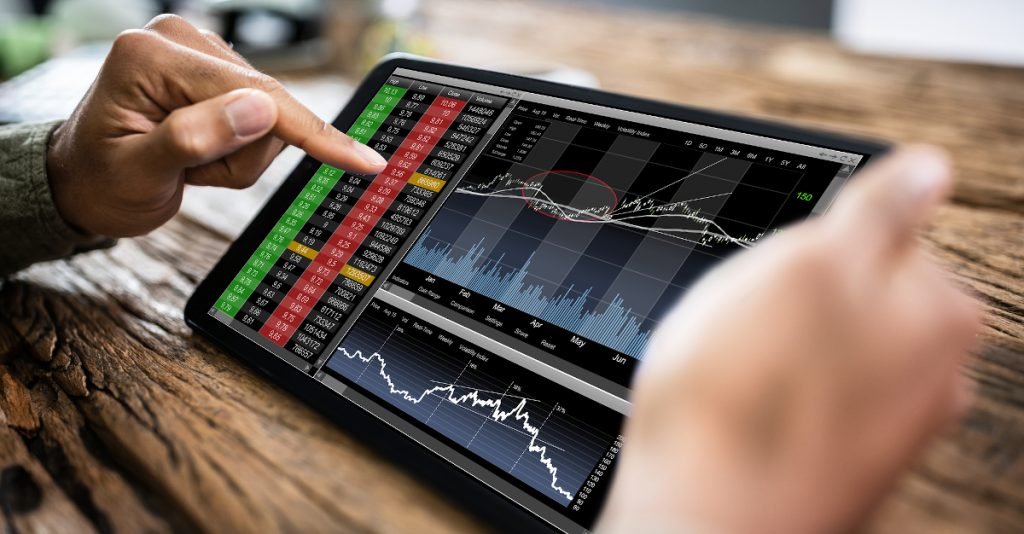[Editor’s Note: This letter was written by Sovereign Man’s Chief Investment Strategist Tim Staermose, who is based in Dar es Salaam, Tanzania.]
Sometimes I am dumbfounded at the total disconnect between major stock markets, and reality.
The world is in its most precarious state in decades. Nuclear war is actually being discussed as a real possibility.
Inflation is at a 40+ year high. Energy costs are soaring. Supply chain dysfunction and anti-capitalistic policies continue to wreck havoc on economic growth.
This means that stagflation draws nearer by the day.
Interest rates are rising and bond yields surging. Employees are in short supply, and millions of open positions remain unfilled. Business conditions are a total mess.
And just today, China ordered the lock down of 10+ million people in Shanghai because, even after more than 2 years of masking and billions of vaccines distributed, COVID still dominates.
Yet despite all of these critically adverse factors, many major stock markets are still near their all-time highs.
France and Germany both face a severe energy crisis. Yet their stock markets are within just 10% of their all-time highs.
India’s BSE SENSEX index is within 6% of its all-time high. Australia’s ASX 200 is within 3% of its all-time high.
In the UK, which also has to contend with a messy ‘Brexit’, the FTSE-100 Index is within just 5% of its all-time high.
And the S&P 500 in the US is also within 5% of its all-time high.
Plus, the current cyclically-adjusted Price/Earnings ratio of the S&P 500 is a whopping 36.81. It has only been higher once before– just prior to the 2000 stock market crash.
It really is amazing that stocks are still so expensive relative to such obvious risks.
Yet here in Africa where I live, the investing landscape is completely different.
I just bought shares of a large electric utility at a Price/Earnings ratio of just 0.4! And that’s not a type-o.
In other words, the entire value of the business is less than what it earned over the last six months.
These are the kinds of crazy, deep-value bargains I’m finding here in Africa.
For the African frontier market investment fund that I have been managing since late 2020, I tend to focus on leading blue-chip companies – the number 1 or number 2 in their business in the country where they operate. Examples include Tanzania Portland Cement Company, Zambia Breweries, and BAT Kenya, to name a few that we own.
Then there’s Kenya Power & Light Company (KPLC on the Nairobi Securities Exchange), which, astonishingly, reported a net profit for the first 6 months of its financial year, ended December 31, that exceeded its entire market capitalization.
Should it make profits at the same rate in the second half, I calculate that the stock is trading on an absurdly low Price/Earnings ratio of about 0.4x.
Believe me, I’ve seen some odd things during my 26-year investment career. But I have never seen a stock trading at a P/E multiple like this.
Of course, when you peel back the onion a little, there are some reasons why many investors have shunned this company’s shares.
Many of Kenya Power & Light’s customers hate the company for its inefficiencies and occasional power outages. Some of its employees reportedly steal from the business. And politicians treat it like a political football.
It also has a significant amount of debt and spends vast amounts on interest payments to service that.
But, as one of my professional colleagues said, “No company is worth 0.4x earnings. Either it’s worth ZERO, or it’s worth a lot more.”
My bet is that, since KPLC is the leading electric utility in a fast-growing country of 55 million people, it’s probably NOT going to zero.
With earnings per share of 1.96 for the six months ended 31 December, and a share price today of 1.52, I think it’s safe to say this qualifies as one of the world’s cheapest stocks.
Again, this isn’t an isolated example. Here in Africa there are many companies whose shares trade at Price/Earnings multiples of 2x or less.
Dividend yields as high as 16% are also readily available on this continent. So, if you’re fed up with the incomprehensibly expensive valuations on developed country stock markets, you might give Africa a look.
Buying stocks here does present some difficulties; most African stocks aren’t accessible through major western brokers like Charles Schwab or TD. You need a specialized broker who can trade securities on the Nairobi Securities Exchange.
This takes a some extra effort. But it’s by no means impossible.
And, at least in my opinion, the benefits are worth the extra hassle.
I live in Africa. I run a business in Africa. Obviously these are frontier markets with plenty of challenges. But the rewards, relative to the risks, are pretty extraordinary.









